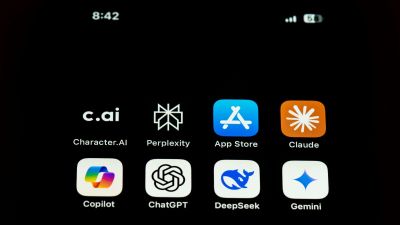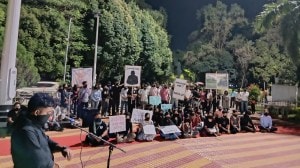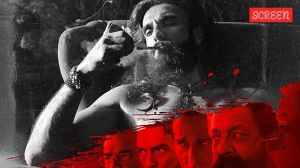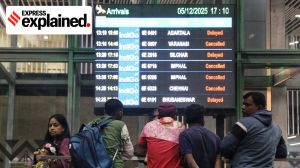Chhattisgarh Congress joins ‘Rahul Gandhi for party president’ chorus, passes resolution
If other states pass resolutions too, Rahul ji should rethink: Baghel; Rahul “may change mind”: Chidambaram
 The Congress last month said the election for the president’s post would be held on October 17. (File Photo)
The Congress last month said the election for the president’s post would be held on October 17. (File Photo)A day after the Rajasthan Congress unanimously passed an informal resolution seeking the elevation of Rahul Gandhi as party president, the Chhattisgarh unit followed suit.
The resolution was passed Sunday at a meeting of the Congress at Rajeev Bhawan in Raipur, attended by state in-charge P L Punia, state unit chief Mohan Markam who finished his three-year tenure, Chief Minister Bhupesh Baghel, and other Cabinet ministers.
“Two resolutions were passed with unanimous consent. First, that party president Sonia Gandhi would appoint the state president and treasurer. Second, that Rahul Gandhi be appointed as the national president of the party,” Punia told the media.
Separately, in an interview to PTI, senior leader P Chidambaram said consensus was best for selection of the new party chief, and that Rahul will always have a “pre-eminent place” irrespective of whether he is the president or not. On whether Rahul will heed appeals of party workers and leaders to become the president, Chidambaram said: “Rahul Gandhi is the acknowledged leader of the rank and file of the party. They want him to be the president of the party also. So far, he has declined. He may change his mind.”
Talking to reporters in Raipur, Baghel said: “The Chhattisgarh Pradesh Congress Committee today passed the resolution (to make Rahul Gandhi president) and the party’s Rajasthan unit has also done this. If similar resolutions are passed in other states, then Rahul ji should rethink it (his decision not to take charge of the Congress) as the party’s presidential election is nearing. Keeping in view the sentiments of all party workers, I think Rahul ji will agree (to become party chief).”
The last time an election for the top party post was held was in November 2000.
Baghel said he had moved the resolution for Rahul as president, and it was seconded by Markam, Assembly Speaker Charan Das Mahant, and ministers T S Singh Deo, Shivkumar Dahariya and Premsai Singh Tekam. The other resolution authorised the Congress president to appoint the party’s state chief and AICC delegates, as decided earlier.
The second resolution is being passed to meet the requirement of the Congress constitution to complete the process of election of PCC presidents and AICC delegates before the election for the top post.
Congress Central Election Authority chairperson Madhusudan Mistry earlier said that resolutions passed by the PCCs authorising the AICC president to appoint the party’s state unit chiefs and nominate AICC delegates would have no bearing on the Congress president elections, for which the nomination window will begin on September 24.
Mistry also clarified that resolutions passed by PCCs supporting any particular leader as Congress chief would also be informal in nature.
However, sections in the party have expressed concern about state units passing such resolutions. One leader from the G-23 camp said this would vitiate and influence the election process.
In the interview to PTI, Chidambaram cited the history of the Congress, saying that between 1921 and 1948, Mahatma Gandhi was its acknowledged leader, and after that, Jawaharlal Nehru and Indira Gandhi. “There were several persons who held the office of president of the party for one or two or three years. (But) There have been periods in Congress’s history when the leader and the president were the same person.” Similarly, he said, if Rahul Gandhi is elected Congress president, he will be both the leader and president, but if not, he will remain the acknowledged leader of the party.
Four days ago, senior Congress leader and the general secretary in-charge of communications Jairam Ramesh had similarly batted for “consensus” in selecting the new AICC chief as well as underlined the “prominence” of the Nehru-Gandhi family in organisational matters in any emerging situation.
Whoever is elected party chief on October 17, Ramesh said, Sonia Gandhi will continue to be a person “everybody looks up to” and Rahul Gandhi will be the “ideological compass”. A party without a high command would be “anarchy”, he said, also speaking to PTI.
Asked about the argument of a section of party leaders including Lok Sabha MP Shashi Tharoor that a democratic contest for the Congress president’s post will revitalise the Congress, Ramesh said if a consensus is not possible, “we should have elections”.
Chidambaram also said there was no reason for any controversy over the fairness and transparency of the party president polls, including on the issue of making them public. It was not the practice of any party to publish the rolls, he said, adding that PCC-wise electoral rolls are available for inspection at the PCC office concerned, while all-India rolls are there at the office of the AICC.
Among those who had sought clarity on the issue of the rolls was Chidambaram’s son Karti Chidambaram, apart from Shashi Tharoor, Manish Tewari, Pradyut Bordoloi and Abdul Khaleque.
Elections for the Congress president’s post are to be held on October 17, with the result to be declared on October 19. If only one candidate is left in the fray after the withdrawal of nominations, the name of the president will be declared on October 8 itself.
- 01
- 02
- 03
- 04
- 05































